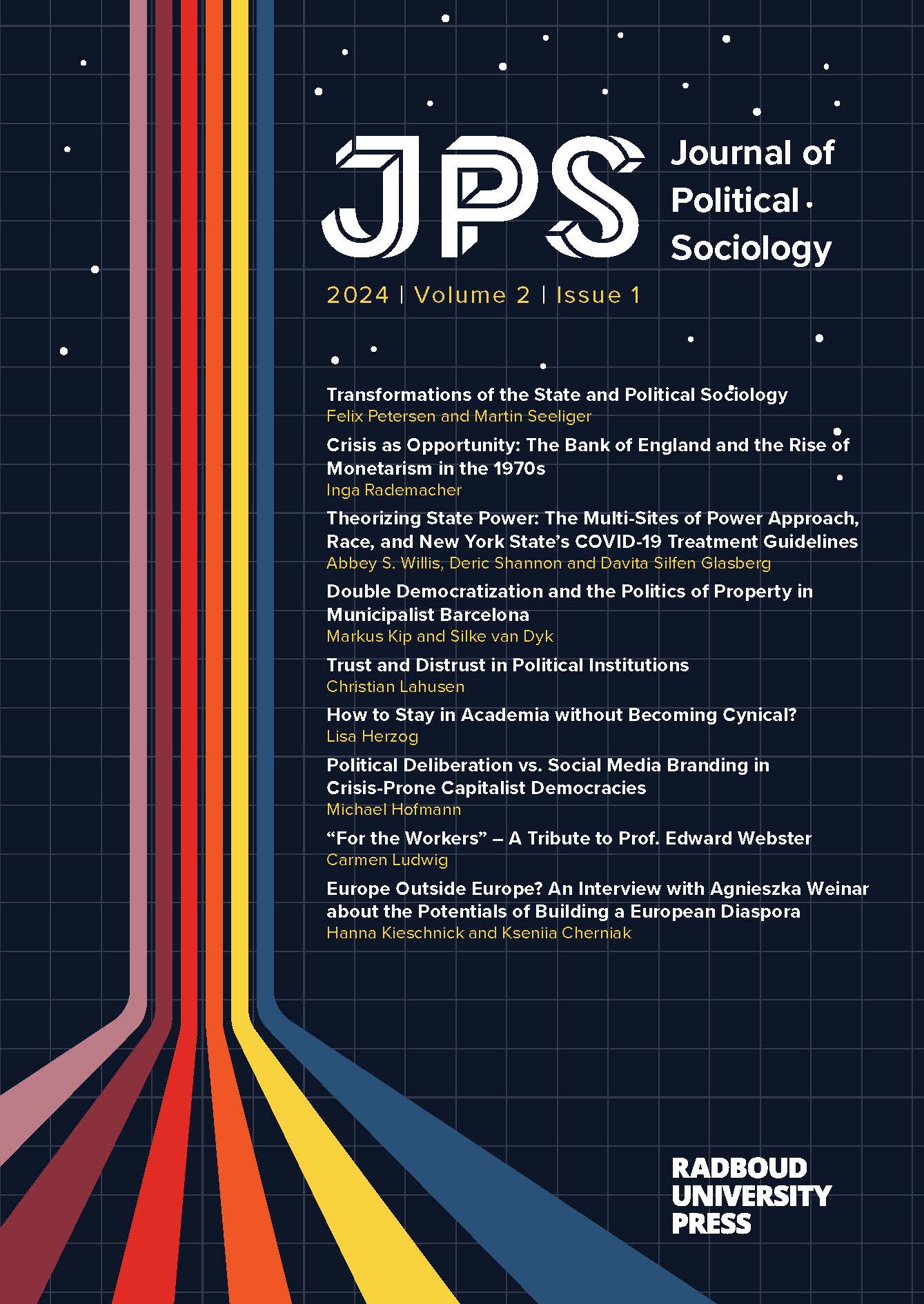Crisis as Opportunity
The Bank of England and the Rise of Monetarism in 1970s
DOI:
https://doi.org/10.54195/jps.18644Keywords:
macroeconomic reforms, central banks, strategies, global economic crisis, capital mobilityAbstract
Since the 1970s, many countries in the Western world implemented radical fiscal and monetary reforms emphasising monetary targets and fiscal restrictiveness. Political economy scholarship has focused on globalisation, international organisations, and ideas to explain the similarity of reform. However, these explanations underestimate how the crisis itself, and the opportunity structures it provided for individual state actors, shaped policy outcomes. Process-tracing applied to a historical case study of the UK (1970-1979) demonstrates that we can best explain the shift as a critical juncture in which a global crisis provided an opportunity structure for central banks to shape the macroeconomic policy agenda.



